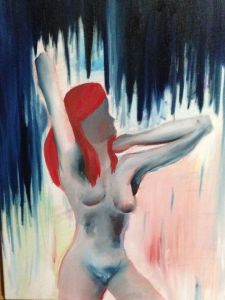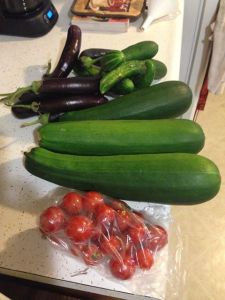Unless you were on a hiatus from life yesterday, it was mother’s day. That day we celebrate moms everywhere with bargain brunches, hallmark cards, bouquet of flowers, or with just hugs. Belated congratulations to deserving moms everywhere. I’m serious when I say this because not every mom is appreciated, but not every mom deserves a pat on the back either. Mother’s day should represent how we celebrate motherhood. For a woman, conceiving a child physically transforms her body forever, and no matter how much surgery, exercise/dieting, or perfect lighting she uses, she’s undergone a change that brands her for life-but this doesn’t mean she automatically joins the motherhood club.
For most of my life, I’ve believed that just because a woman has a uterus doesn’t mean she’s mommy material. An egg donor, but not necessarily a mom.
The transition from an individual to motherhood is one I continuously try to understand for that’s the reason moms are so incredible. Giving birth is a miracle, so I can’t wrap my mind around that (even described medically). Raising a child? The amount of hard work, dedication, and a love used sparingly by people in their lifetime is profoundly moving to me. My mind still tries to make sense of it, especially when I see and hear moms every day kicking ass and staying awesome. Unfortunately this was not the case with my mom, who, honestly, would have been better off not being a mom.
I asked myself yesterday, “Should I call my mom?” I started to bite my nails again. I was clenching my fist. I didn’t want to think about it. I tried to refocus my thoughts to something else, except, no one tells you that your thoughts just relocate to a better hiding place in your skull. So I didn’t call her. No text. No email. No non-threatening FB post. I want to believe I made the right choice. I tell myself today I made the right call-with wavering resolve.
She’s my mom; yet here I am at my computer, waiting for my inbox to be full of emails sent by her. I will be told that I’m “self-centered,” that I “don’t understand {her},” and “that you’re the only reason I’m living now.” When did I become a lifeline? She will call me, yell at me, blame me until one of us hangs up. This mother’s day, did not hear from me. I made the choice to cut all my ties with my mom.
After my parents divorced, I saw my mom four days out of the month. When she had me and my brother on those days, I loved it. Chicago became my second home. I went to the movies, arcades, restaurants, and loved every minute of it. It gave me a break from living in a town bombarded by cornfields. She was, as my friends said, ‘the coolest mom everyone wanted to have.”
What a joke.
All this stuff only disguised her addiction to everyone. I let the good memories monopolize my brain. I didn’t want to admit my mom was an alcoholic. It’s just one thing, one label. I naively thought she had it under control. If the problem wasn’t showing, then everything was okay. If it doesn’t affect me, it’s not a problem. I know I was a kid, but even I should have known better. I still wished I had been better prepared to deal with my mom in my twenties.
I got the rude awakening shortly after my brother moved out of the house to go to university. I was still living at home with my dad. My mom, however, who wasn’t even living in the same house, did not like the idea of how far my brother was moving away. I tried to visit, but I was also starting community college soon. My schedule became busy. I tried to reschedule my weekend visits with her, but my mom was disinterested. She said, “what’s the point with only one of you here?” I didn’t know how to respond. My mom is the victor when it comes to having the last word in conversations. Our every-other weekend trips came to an end.
The holidays approached us. One night I groggily woke up to a phone call. My mom was bawling about Thanksgiving. I couldn’t process what she was saying. Apparently, my brother had sent a text that read, “I’ll have to check my schedule that weekend.” My mom was somehow hurt and offended by it. I couldn’t make sense of her reaction, but I tried to calm her down. She wouldn’t listen. I noticed her speech slurring. Her voice pitched and deflated at once. She eventually hung up on me. It was a minor incident, I thought. I didn’t think much of it.
Then the emails started. My mom relentlessly sent over 30 emails to my brother. Then, I started to receive the emails. Each email pinned us for her misery. According to her, we’re the reason she’s so poor. She spent all her money on us when we were kids instead of paying her bills. We’re the reason she could never go anywhere fun; she used all her gas on us. We’re the reason she never had nice things because she was too busy buying us toys. My brother didn’t know what to do.
It was hard, but he decided to cut all ties with her. After a round of emotional blackmail though, I couldn’t just abandon my mom. I was all she had. I practiced what to say to her, rehearsed my lines whenever I visited her, and I certainly never talked about my brother when I was with her. I spent most of my young adult life being exhausted, fearing what my mom may do to me or to herself if I didn’t say the right thing. I wanted to appease her. I hated she was miserable. Still hate it. There was nothing I could do, though. I felt helpless and exhausted. I wasn’t equipped to deal with my mom, so I suggested she seek psychiatric help-which, as you can imagine, didn’t roll over well with her. It lead to only more fighting.
I knew addiction was the problem. I told myself, “It’s not her talking. It’s the booze.” I poured a lot of my time into how I should act around her instead of paying attention to how I felt. With the amount of time I dedicated to her, I could have earned a PhD degree by now.
It was another night. My phone rang. I saw her name flash across the screen, so I answered it.
“I’ve got a loaded gun waiting at home,” my mom said. I sighed, knowing she was drunk, again. At first, I tried to calm her down, again. And Again, and again, and AGAIN, AND AGAIN? AGAIN?? Was this ever going to stop? I couldn’t take it anymore. Soon we were exchanging screams. I hung up. I didn’t know what to do. I didn’t want my mom to hurt herself. I didn’t know what to do except call someone. Her mom. The cops got involved. My mom was pissed I called her mom. I know I shouldn’t have yelled at her. But my mom still doesn’t see what she did wrong or how she treated me. She blamed me for the cops showing up. That was her focus. She only wanted me to listen. She said I overacted. I completely disagreed with her, so I didn’t talk to her for nearly three months after the incident.
I wish I could say that was my last dealing with my mom. If only I could say that. I forgave her because she was my mom. That was the only reason. Nothing changed, of course. What my mom didn’t know was my own mental health was declining. I struggled with maintaining order in my life. I felt myself losing touch with people. Then last February, tragedy hit the family. I was unstable. I was already severely depressed. I received a phone call from her. She was screaming at me. I had no energy to calm her down. I just took it. Then, she finally said it, “I wish you could be unborn.” I never asked to be born, but I couldn’t undo what she said. I left her text stating that I couldn’t have any further contact with her (two therapy sessions and a month later). I didn’t wait for her reply. I blocked her. I made sure she couldn’t contact me, for the sake of my mental health.
A mother’s love for her child is unconditional? It’s a standard moms try to live up to. Lots of women are popping babies. Lots of women are mommies. Not all of them participate in motherhood, though. It should be recognized that women are not innately motherly.
I didn’t celebrate mother’s day with mom this year. I don’t know if I’ll ever reach a point in my life where I can forgive her.
Don’t celebrate mother’s day because she’s your mom. Celebrate because the way she momed you growing up.


